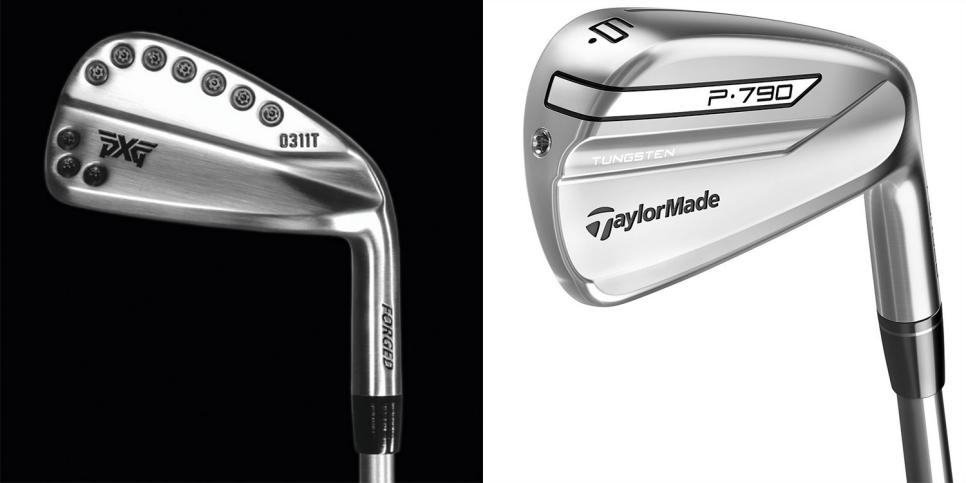Equipment
PXG, TaylorMade settle patent-infringement suits with cross-licensing agreement

The patent-infringement lawsuits and countersuits filed by PXG and TaylorMade have ended in a cross-licensing agreement announced in overnight press releases.
The original dispute arose in September 2017 when PXG filed court papers claiming that TaylorMade’s P790 irons, just days before the clubs were due in stores, violated PXG patents. The claims centered largely on the iron’s hollow design. TaylorMade’s P790 features a polymer-foam filling designed to allow for a thin face structure and dampen vibration. The club also has tungsten weighting towards the toe. All of PXG’s irons are hollow constructions filled with an elastomer that’s designed to support a very thin face, along with external tungsten weights toward the back and toe portions of the iron.
PXG also had filed a restraining order to prevent sales of the P790, and while that request was denied in court, TaylorMade initiated a countersuit. In all, the suits and countersuits involved 23 patents stretching beyond irons and into metalwoods—and, of course, mountains of legal filings.
Both companies issued press releases including statements from TaylorMade CEO David Abeles and PXG CEO Bob Parsons.
Abeles: “I’m pleased that we were able to reach an acceptable and amicable resolution to put this case behind us so we can continue focusing on bringing industry leading equipment innovations to the golfer.”
Parsons: “As a golf equipment innovator, PXG will continue to pursue research and development and obtain patents for our novel club designs in the iron-technology space. We will not hesitate to assert those patents in the future.”
The lawsuits had reached a holding pattern late last year while the U.S. Patent and Trademark Office conducted an Inter Partes Review of the patents in question. Both companies had sought to invalidate multiple patents from the other, and it appeared that both parties were in jeopardy of having patents invalidated by the U.S. Patent Trial and Appeal Board.